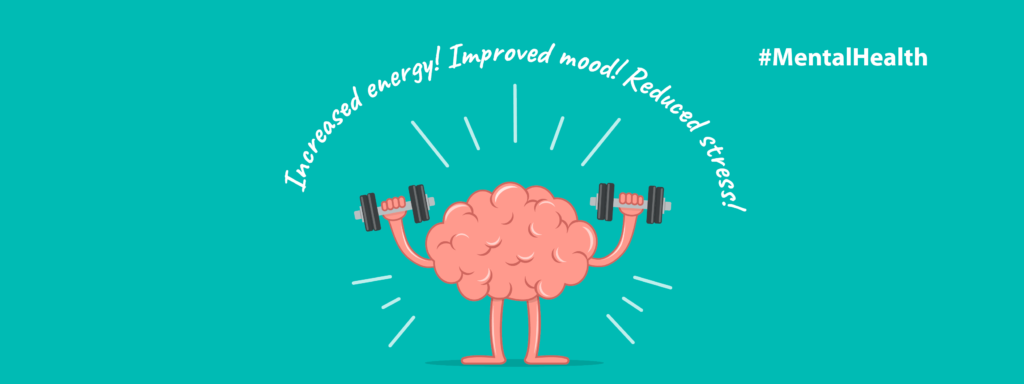
Physical Fitness and Mental Health: A Powerful Connection
When we think of physical fitness, the first thing that often comes to mind is sculpting a fit body or reaching athletic performance goals. However, the impact of regular exercise on mental health is equally profound, yet frequently overlooked. In recent years, research has highlighted the powerful connection between physical fitness and mental well-being, proving that taking care of your body is just as crucial for your mind.
The Link Between Exercise and Mental Health
Physical exercise doesn’t just strengthen muscles or improve cardiovascular health—it also plays a vital role in brain function. It influences the release of neurotransmitters, which are chemicals that affect mood, emotions, and cognitive abilities. Among these, endorphins—often known as the body’s “feel-good” hormones—are released during physical activity. These endorphins help reduce feelings of stress, anxiety, and depression, leading to an enhanced sense of well-being.
Moreover, regular physical activity stimulates the production of serotonin, another neurotransmitter crucial for mood regulation. Higher serotonin levels are linked to improved mental health, better sleep patterns, and even reduced feelings of sadness or hopelessness. Exercise also helps increase dopamine levels, which play a major role in motivation and the ability to experience pleasure.
How Physical Fitness Improves Mental Health
- Reduces Stress and Anxiety
One of the most immediate benefits of exercise on mental health is its ability to reduce stress and anxiety. Physical activity promotes the production of endorphins, which work as natural painkillers and mood elevators. They help in reducing stress hormones like cortisol and adrenaline. A moderate workout can leave you feeling more relaxed, focused, and emotionally balanced. - Improves Mood
It’s no surprise that regular physical exercise can lead to a significant improvement in mood. Studies consistently show that people who exercise regularly are less likely to experience mood swings or suffer from mood disorders such as depression. Even low-impact exercises, such as walking or light yoga, can boost mood and create a sense of happiness and satisfaction. - Boosts Cognitive Function
Exercise doesn’t just improve physical fitness; it also boosts cognitive function. Research shows that aerobic activities, like running or cycling, stimulate the growth of new brain cells, particularly in the hippocampus—a brain region linked to learning and memory. Regular physical activity also improves attention, memory, and decision-making, leading to sharper cognitive abilities over time. - Helps Combat Depression
Depression is one of the most common mental health conditions worldwide, and research consistently shows that exercise can be just as effective as medication in treating mild to moderate depression. Regular physical activity can improve self-esteem, increase energy levels, and foster a sense of accomplishment. These benefits, combined with the positive chemical changes in the brain, provide a natural remedy for overcoming depressive episodes. - Promotes Better Sleep
Exercise is also closely connected to improved sleep patterns. Regular physical activity promotes deep sleep, which is vital for mental and physical recovery. As exercise helps in the regulation of circadian rhythms, it can lead to more restful sleep, a critical factor for emotional well-being and overall mental health. People who engage in daily exercise are more likely to fall asleep faster, stay asleep longer, and feel more refreshed upon waking. - Increases Self-Esteem and Confidence
Physical fitness directly impacts how we view ourselves. Achieving fitness goals—whether it’s increasing your strength, endurance, or flexibility—can significantly boost self-esteem and confidence. When you notice physical changes in your body or improve in your physical abilities, it can lead to a more positive self-image and a greater sense of empowerment. - Promotes Social Interaction
Many forms of exercise involve a social element—whether it’s group fitness classes, sports teams, or even walking with a friend. Social interaction, combined with physical activity, can further improve mental well-being. Being part of a group or having a workout buddy provides a sense of belonging, support, and accountability, which can be especially important for mental health.
How to Get Started
The beauty of integrating physical fitness into your routine for mental health benefits is that it doesn’t require extreme intensity or long hours at the gym. Here are a few tips to get started:
- Start Small: Begin with a manageable activity, like walking, cycling, or swimming. Gradually increase the intensity and duration as you feel more comfortable.
- Consistency Is Key: Aim for at least 30 minutes of moderate exercise most days of the week. Consistency is more important than intensity when it comes to mental health benefits.
- Find What You Enjoy: Whether it’s yoga, dancing, or hiking, choose an activity you genuinely enjoy. When you find something fun, you’re more likely to stick with it.
- Mix It Up: Combining different types of exercise, like cardio, strength training, and flexibility workouts, can help keep things interesting and balanced.
Conclusion
The connection between physical fitness and mental health is undeniable. By engaging in regular physical activity, you not only strengthen your body but also enhance your mind. Whether you’re looking to reduce stress, improve your mood, or boost your cognitive function, incorporating exercise into your routine can bring about significant mental health benefits. So, take that first step toward a healthier, happier you—your body and mind will thank you for it.
